Joshua-Tor recognized as ‘one of the top scientists in her field’
Leemor Joshua–Tor, a professor at Cold Spring Harbor Laboratory and a Howard Hughes Medical Institute investigator, has won the 2018 Mildred Cohn Award in Biological Chemistry from the American Society for Biochemistry and Molecular Biology. Named for the first female president of the ASBMB, the award is given to scientists who have used pioneering approaches to understand biological chemistry. Joshua–Tor is recognized for her work in resolving the structures of proteins involved in gene silencing, DNA replication and gene regulation in yeast.
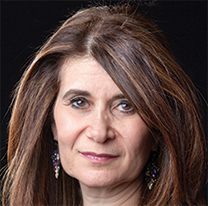
“I’m so thrilled to be honored with this award named after such an incredible trail blazer as Mildred Cohn. What an inspiration!”
— LEEMOR JOSHUA-TOR
Bruce Stillman, a colleague at Cold Spring Harbor, nominated Joshua–Tor for the award, writing that her “structural and biochemical insights have provided significant breakthroughs to our understanding of important cellular processes.”
Joshua–Tor began her scientific career working for the Israel Defense Forces in research and development. As a graduate student, she worked in the lab of Joel Sussman at the Weizmann Institute of Science where she mastered X-ray crystallography and studied abnormalities in DNA structure. During her postdoctoral work at the California Institute of Technology, she focused on hexameric compartmentalized proteases called bleomycin hydrolases.
Joshua–Tor’s major contributions have focused on structural characterization of proteins in RNA-mediated silencing; helicase mechanisms in DNA replication; and galactose, or GAL, protein interactions in yeast-gene regulation. Her lab was the first to identify Argonaute as the protein in the RNA-induced silencing complex that carries out the cleavage of mRNA for gene silencing. Later collaborations with Greg Hannon at Cold Spring Harbor showed that only Argonaute and silencing RNA were needed for cleavage of mRNA targets and effective RNA interference.
Joshua–Tor’s group also has investigated the mechanism of DNA translocation by DNA helicases and how helicase is able to unwind DNA during the replication process. John Kuriyan, a professor of molecular and cell biology at the University of California, Berkeley, supported Joshua–Tor’s nomination for the Cohn award, writing of this work, “In one swoop, this paper showed how helicase recognizes DNA and how ATP binding and hydrolysis results in a spiral staircase that reptates around the DNA.”
Joshua–Tor and her team solved the structure of the transcriptional repressor GAL80, which binds to and represses the GAL4 activator protein important for galactose utilization in yeast. Before her work, it was not known how GAL80 was able to dissociate rapidly from GAL4 to allow for galactose metabolism.
Joshua–Tor’s lab now focuses on mechanisms of RNAi and DNA replication, including the regulation of the important miRNA let-7. Her lab has also recently solved the structure of the human origin recognition complex, using combined X-ray crystallography and cryo-electron microscopy to create three-dimensional images of proteins.
Joshua–Tor has received numerous awards over the years, including the American Council on Education Women’s Network Women in Science and Education Leadership Award, the Dorothy Crowfoot Hodgkin Award from the Protein Society, and the Beckman Young Investigator Award from the Arnold and Mabel Beckman Foundation.
Joshua–Tor will receive her award during the 2018 ASBMB Annual Meeting in San Diego, where she will deliver an award lecture titled “The origin recognition complex: where it all begins.” The presentation will take place at 8:30 a.m. April 23 in Room 6B in the San Diego Convention Center.
Enjoy reading ASBMB Today?
Become a member to receive the print edition four times a year and the digital edition monthly.
Learn moreGet the latest from ASBMB Today
Enter your email address, and we’ll send you a weekly email with recent articles, interviews and more.
Latest in People
People highlights or most popular articles

Thiam elected to EMBO
He was recognized during the EMBO Members’ Meeting in Heidelberg, Germany, in October.
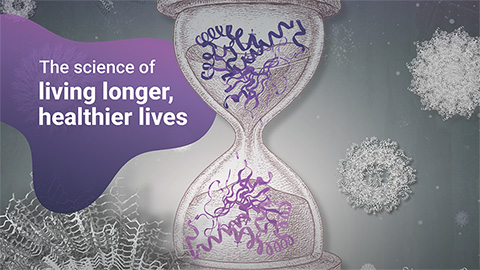
The timekeepers of proteostasis
Learn about the cover of the winter 2026 ASBMB Today issue, illustrated by ASBMB member Megan Mitchem.
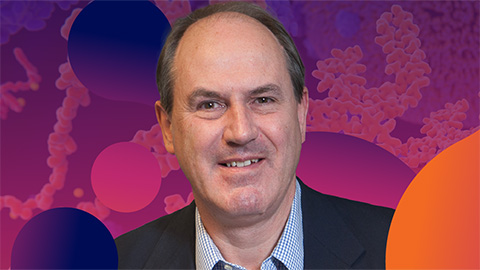
Defining JNKs: Targets for drug discovery
Roger Davis will receive the Bert and Natalie Vallee Award in Biomedical Science at the ASBMB Annual Meeting, March 7–10, just outside of Washington, D.C.
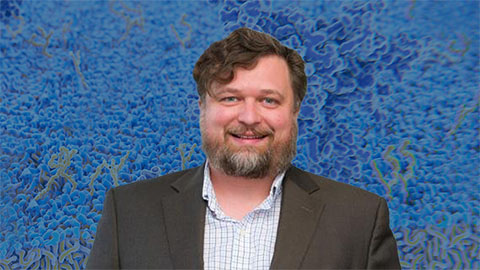
Building better tools to decipher the lipidome
Chemical engineer–turned–biophysicist Matthew Mitsche uses curiosity, coding and creativity to tackle lipid biology, uncovering PNPLA3’s role in fatty liver disease and advancing mass spectrometry tools for studying complex lipid systems.
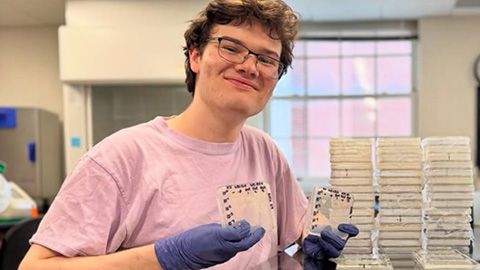
Summer research spotlight
The 2025 Undergraduate Research Award recipients share results and insights from their lab experiences.
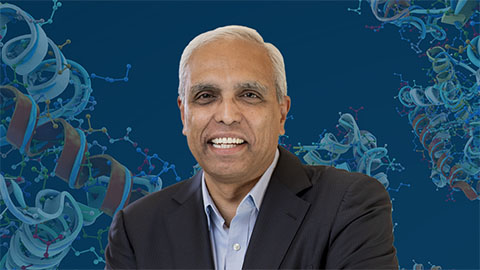
Pappu wins Provost Research Excellence Award
He was recognized by Washington University for his exemplary research on intrinsically disordered proteins.

